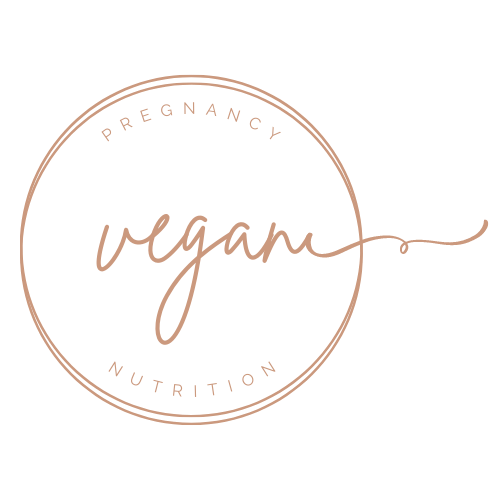Why You Should Opt for a Vegan Pregnancy Meal Plan
written by Maya Bach, MPH, RDN
Vegan diets are becoming increasingly common, and there is a reason why; they are proven to improve body health. A well-planned and balanced vegan diet can be safe and healthy for pregnancy.
A healthy vegan pregnancy used to be thought of as unachievable and unhealthy. But they’re becoming more popular as more people switch to eating less meat and more plant-based proteins. When you’re meeting your nutrient needs on a vegan diet, you may enhance your body’s fertility and support early fetal development.
You and I both know that vegan nutrition plans have been blamed for lacking essential vitamins and nutrients that support your baby’s development. Any diet, vegan or not, if it’s missing nutrients, has the potential to harm you and baby.
The key to ensuring you and your baby are nourished? Understanding what I like to call the nutrient “areas of opportunity.” What does a vegan diet for pregnancy lack? What areas can we address with foods, supplements, or both?
Highlighting the Pros and Cons of Vegan Diets During Pregnancy
Below are the pros and cons of vegan diets during pregnancy:
Pros
Because maintaining a healthy body weight may reduce the risk of developing gestational diabetes, a plant-based vegan diet may naturally support an optimal weight during preconception through pregnancy. Vegan can also include dairy-free cheeses, meatless products, nut butter and seeds, all calorie-rich foods. It’s worth noting that vegan doesn’t necessarily equal low calorie or low fat. As with all dietary approaches, balancing protein, carbs, and fat is essential to support your body’s nutrient needs.
Animal products contain cholesterol, a waxy, fatty substance that builds up in your body and hardens the arteries over time, resulting in high blood pressure. Reducing cholesterol intake reduces the risk of high blood pressure, known as preeclampsia, during pregnancy. Maintaining a balanced vegan diet plan before and during pregnancy may help reduce your risk of developing preeclampsia.
What you eat impacts your body’s fertility, nutrient status, and early fetal development. A vegan diet centered around antioxidant-rich plant-based foods and minimally processed proteins can help you meet your nutrient needs. Because iron is trickier when you’re vegan and pregnant, it’s crucial on iron-rich foods like cooked spinach, lentils, and fortified foods like some cereals.
Cons:
Vegan pregnancy diets must be appropriately designed to support your and your baby's growth. While you might be used to following a vegan meal plan, you need to adjust certain nutrients when you're pregnant. Your iron needs, for example, increase during pregnancy. And not all prenatal supplements include iron. Some prenatal supplements include zinc, while others don't! As a pregnant person, it's essential to get enough proper nourishment for both you and your baby.
The Bottom line:
For expectant mothers, vegan pregnancy diets are an excellent way to ensure improved fertility and have a safe, healthy pregnancy journey. To learn what nutrients you need to support your vegan pregnancy, enroll in my 6-week vegan pregnancy program for soon-to-be vegan moms. You're not alone!
If you’re interested in hearing from past clients, check out our podcasts.
________
Always discuss food safety and supplementation with your healthcare provider. This article is intended for informational purposes and is not meant to replace individual treatment or care.
Grow a healthy baby as a vegan mom-to-be!
Join like-minded women inside the Vegan Pregnancy Collective to get the tools you need so you can stop worrying and wasting time Googling all things vegan pregnancy!







